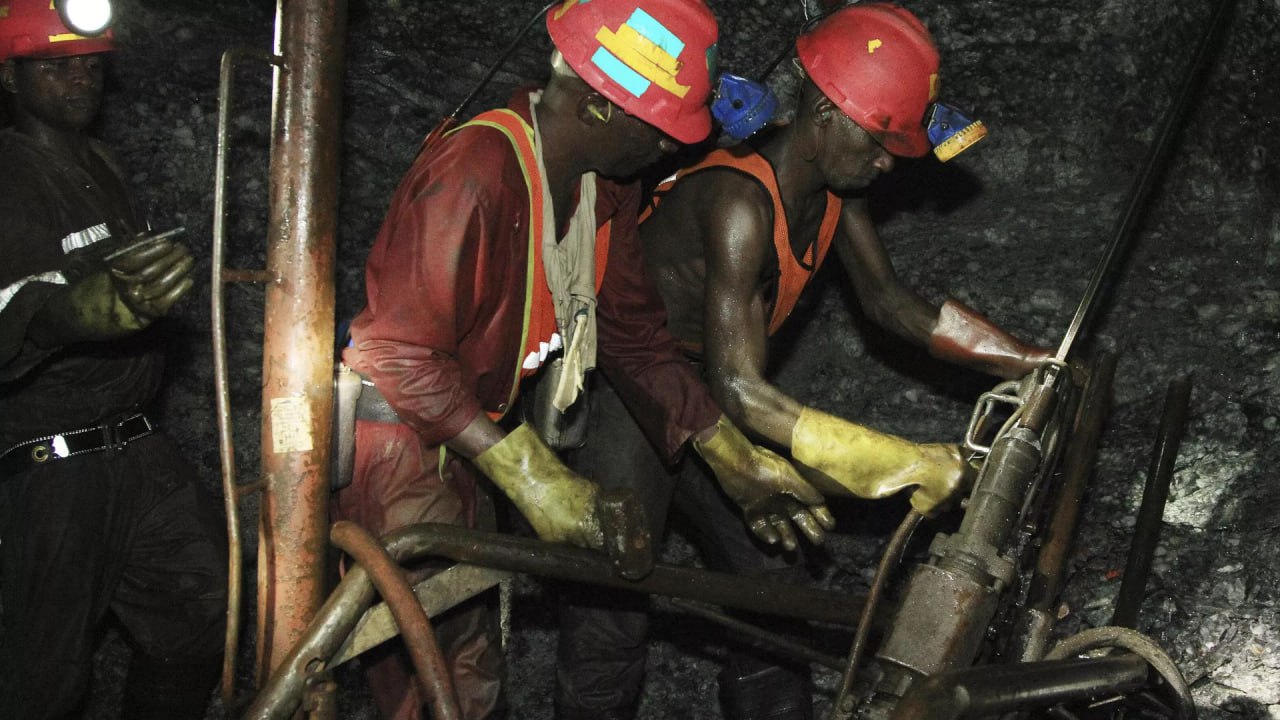A South African court has ruled in favor of allowing community members and charities to deliver essential humanitarian aid to hundreds of illegal miners trapped underground in abandoned shafts of the Stilfontein gold mine. The decision comes amid a growing humanitarian and legal crisis involving artisanal miners, also known as zama zamas.
The court ordered that relief efforts begin “within two hours of the court order being handed down,” permitting aid providers to deliver water, food, and medication to miners trapped in shafts 10 and 11 of the mine. The ruling was a response to appeals from activists and civil society organizations advocating for the humane treatment of the miners, many of whom are believed to be in desperate conditions.
Despite the court’s decision, aid had not been delivered as of Monday, according to Thembile Botman, leader of the community-based organization Mining Affected Communities United in Action. “We are still calling for action, but the relief has yet to reach the miners underground,” Botman stated.
Efforts to organize the provision of aid have faced logistical and bureaucratic delays, compounded by the uncertainty surrounding the number of miners still underground and the safety risks involved in accessing the shafts.
The crisis began in mid-November when approximately 4,000 illegal miners became trapped in abandoned shafts of the Stilfontein mine in North West Province. Local authorities had initially imposed a ban on providing food and water to those underground, citing a strategy to “smoke them out.”
Around 100 miners managed to escape to the surface but were promptly detained by police. The fate of the remaining miners remains unclear, with no definitive count of how many are still trapped or their conditions underground.
Authorities have faced criticism for refusing to mount rescue operations, with police reiterating their stance that they would not intervene to assist the unlicensed miners. This has drawn sharp condemnation from human rights groups and community organizations, who argue that the miners, regardless of their legal status, are entitled to basic humanitarian assistance.
Illegal mining, particularly in abandoned gold mines, is a widespread issue in South Africa. Thousands of impoverished individuals, many of them migrants from neighboring countries, risk their lives working in hazardous conditions to extract remnants of gold from disused shafts.
While the government has labeled the zama zamas as a security and economic threat, many experts point to systemic issues such as unemployment, poverty, and the decline of formal mining operations as the root causes driving individuals to engage in illegal mining.
The Stilfontein crisis has brought renewed attention to these underlying challenges, as well as the urgent need for a more balanced approach that addresses both the security risks and the humanitarian dimensions of the issue.
The court’s decision marks a significant shift in the handling of the crisis, highlighting the necessity of prioritizing human life over punitive measures. Legal experts have praised the ruling as a step toward upholding constitutional principles, particularly the right to life and dignity.
“This is not just about enforcing the law but also about ensuring that we don’t lose sight of our humanity,” commented a Johannesburg-based legal analyst.
As appeals for aid continue, attention now turns to the implementation of the court order. Community organizations, charities, and local officials face the daunting task of organizing and delivering aid in a highly challenging environment.
Meanwhile, calls are growing for a broader policy review to address the issue of illegal mining comprehensively. This includes proposals for formalizing artisanal mining, providing alternative livelihoods, and enhancing the safety and regulation of abandoned mine sites.
The Stilfontein crisis serves as a stark reminder of the complex interplay between economic desperation, security concerns, and human rights in South Africa’s mining sector. How the government and civil society respond in the coming weeks will have lasting implications not only for the miners trapped underground but for the future of mining governance in the country.













Leave a comment